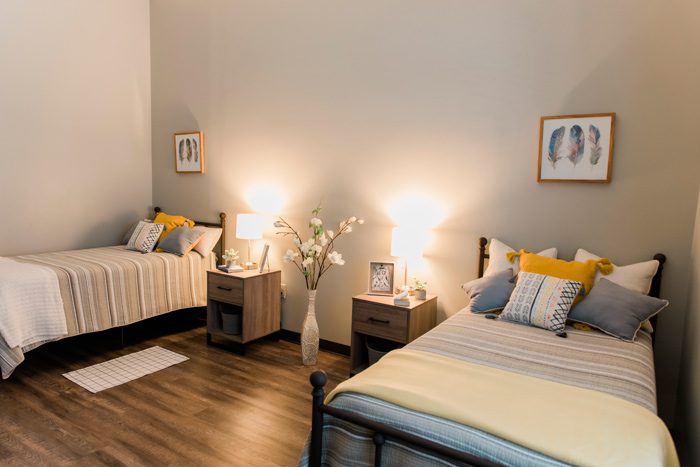Inpatient Residential Rehab in Louisiana
Once one is free from addictive chemicals and the stressors of daily life, damage caused by addiction or a history of trauma can be difficult to cope with. Our Inpatient Residential Rehab Program allows clients to take a step away from their daily lives to focus on developing those coping skills. While living in our home-like residence, clients participate in daily treatment activities such as individual therapy, group therapy, and experiential approaches.
Clients will also have access to spirituality and meditation groups as well as physical training—all aimed at treating clients holistically.
Inpatient Residential Rehab in Louisiana Program Schedule
Our Inpatient Residential Rehab Program lasts two weeks to 90 days, depending on the type of treatment needed. Getting into a daily routine of positive living is an effective form of relapse prevention.
Victory Recovery Center feels that a strong support system is an important part of recovery. Family Week is a feature of our inpatient program that is open to friends and family members of clients. Films, lectures, and group discussions are used to educate family members and friends about addiction and how to support their loved one’s recovery. Family groups will be scheduled by the treatment team as needed.
Nearing completion of the residential program, our treatment team will also work with the client and the family to provide a continuing care plan for the entire family.
Trac9 relapse prevention program
Clients will also begin working with the online-based Trac9 relapse prevention program while at Victory and can use it for 12 months after discharge.
Through a secure web app, Trac9 uses a series of standardized assessments to identify changes in depression, anxiety, stress, visual response to cravings, verbal response to cravings, spirituality, commitment to sobriety, optimism, and quality of life.
The assessments are collected on an as-needed basis, typically weekly, and track the user’s responses to predict the likelihood of a relapse. The results are charted in an easy-to-read graph that shows the client’s progress or the need for additional recovery work.









